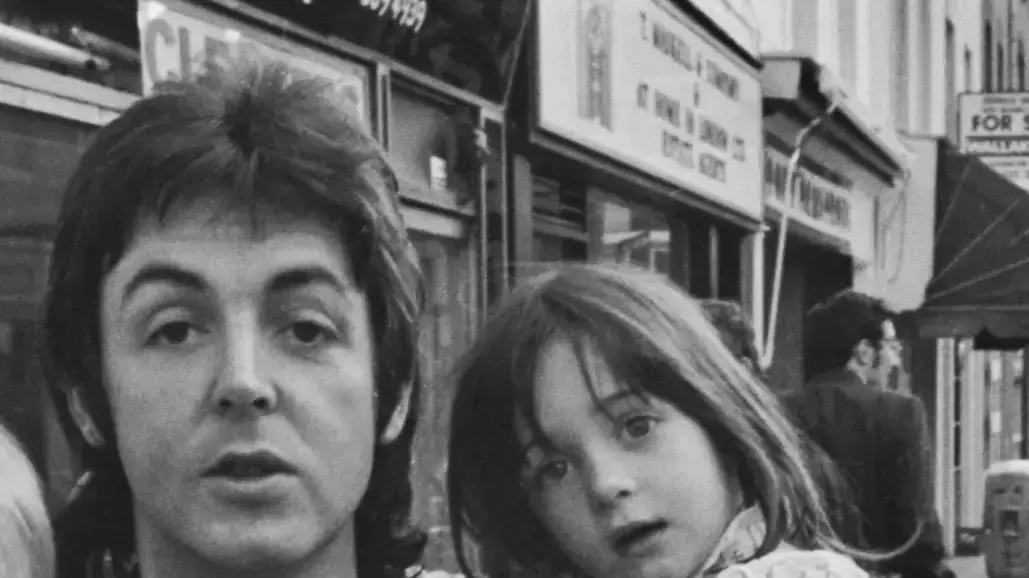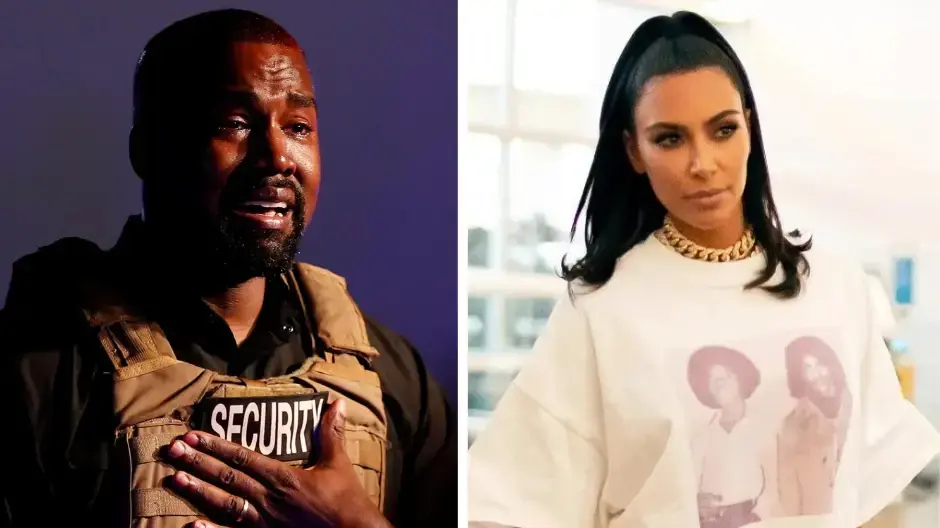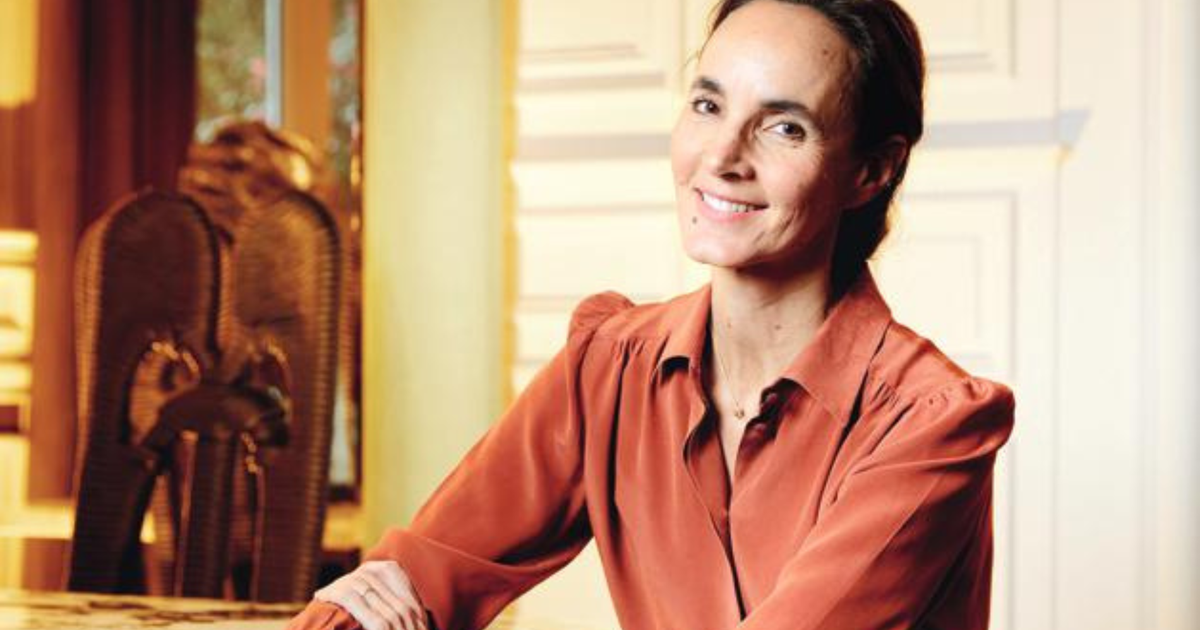On August 20, 1969, Ringo Starr, George Harrison, John Lennon and Paul McCartney entered the EMI studios in London.
So they weren't called "Abby Road" yet.
It was six in the evening when they turned on the lights in studio number 2. This is the time when the workers used to go home, but for the Fantastic Four from Liverpool they used to bend the rules.
Producer George Martin and the studio's dedicated technicians sat down with the band members to do the final mix for the song "I Want You (She's So Heavy)" that they had recorded a few months earlier.
The song was long, the mix was complicated and consisted of two different parts that together lasted over 7 minutes.
Alan Parsons, who worked as a technician at the studio, said that as usual, the friends argued.
It was an artistic, professional debate - but devoid of emotion.
At one o'clock in the morning, John realized he had had enough.
He turned to legendary technician Jeff Emerick and ordered: "Here, stop it there. Cut and that's it."
And so, seemingly arbitrarily, the first side of the Beatles' last album ended with a rough, almost violent cut.
At 1:15 in the morning the members of the Beatles left the studio, not knowing that this was the last time they would all be together in the recording studio, which would soon be famous all over the world by the name of the street where it is located.
Exactly one week later, at a distance of less than a kilometer away, at the "Hasdra" maternity hospital, Paul McCartney's first biological daughter - Mary - was born.
The McCartney family in 1973 in London.
From right to left: Stella, Linda, Paul, Mary and Heather (Photo: GettyImages)
Mary was named after McCartney's mother (known to us from the first stanza of Let It Be), and she is also mentioned by her explicit name in John and Paul's last recorded fight.
In a meeting held at Apple's London offices, less than two weeks after her birth, John accused Paul of putting songs on their albums that even he didn't like, just because he thought they had an audience.
John noted that it was "crazy" to put songs like "Maxwell's Silver Hammer" or "Ovaldi Ovalda" on the album - instead of just giving them to an audience that suits them - and then noted that it was a song he'd rather just give to Mary.
Many legends have been woven around the long and painful separation process of the biggest band in history, including here on the site, but Mary McCartney's part is often left out of the stories - simply because we usually don't tend to blame babies for breaking up bands.
What's more, it's much easier, even if unfairly, to blame Yoko.
Fans of the "butterfly effect" theory can't help but wonder what would have happened if Paul McCartney hadn't had a baby girl, on the very day his three bandmates traveled together to watch Bob Dylan perform at the Isle of Wight festival.
It was a huge event.
Dylan's first performance in three years after a serious motorcycle accident.
150 thousand people came to the concert, including John, George and Ringo, along with their wives.
The members of the Rolling Stones were also there, also Elton John.
They spent time together.
From there they continued to the house that Dylan rented, and he became the first to hear the record that would become "Abby Road".
They talked about music.
Drink a little, smoke a lot and reconnect.
John even played the friends a new song he had written, and suggested that Dylan join them in his recording.
The only problem: Paul wasn't there.
If there was - maybe another Beatles song would have been born.
Maybe another album.
Instead, he naturally stayed with his wife Linda at the maternity home, a ten minute walk from the crossing that would become world famous.
We will never know what would have happened if Mary had been born just a week later.
If you had been born a week later, would we have gotten another Beatles song?
Mary McCartney with David Ringo (Photo: GettyImages)
Mary was only a month old when The Beatles released Abbey Road, their last album - and later their most successful album.
Officially, the band existed for legal and contractual reasons for a few more months, but Mary's de facto life coincided with her famous father's post-Beatles period.
Still, Avi Road studios themselves became an integral part of her childhood.
"The studios were within walking distance of our house," says McCartney in a Zoom interview with Walla!
Culture, "I have pictures crawling on the carpet there."
When her parents wanted to run errands, they knew they could always come to the studio and leave her with one of the technicians.
It was really family, they had known her since she was born.
A week ago, the first movie directed by Mary McCartney was uploaded to the Middle Eastern version of Disney+.
The docu, which received the name "If the walls could sing", unfolds the story of the famous studio in London, which has been operating for over 90 years.
Naturally, any film about the studios would have to focus mostly on the story of the Beatles, and certainly when the daughter of one of the Fantastic Four is in charge of the project.
"When I went into it, I didn't know how much The Beatles had recorded in the studio," admits McCartney, as she sits by herself in the famous studios.
"I knew they recorded here but I didn't really know that apart from 'Let It Be', all their other albums were recorded at Abbey Road. I didn't know much about the history of the place. I didn't know the studios were even 90 years old, for example."
The premiere of "If the walls could sing".
Mary McCartney, Elton John, Paul McCartney and Ringo Starr (Photo: GettyImages)
Mary McCartney was the first biological daughter of Paul and Linda McCartney.
The famous Beatle later told that it was not planned, so the couple got married when Linda was four months pregnant.
Paul adopted Heather, Linda's daughter from a previous marriage, and later the couple had two more children - Stella and Michael.
Paul has another daughter, Beatrice, from his second marriage.
The 53-year-old McCartney grew up as a vegetarian like her entire family, and was among the initiators of the "Meatless Second" project in the United Kingdom.
She published several cookbooks on the purity of plants and even hosted the vegan cooking show "Mary McCartney Presents" on the Discovery Channel, which was nominated for an Emmy Award.
She is remarried and the mother of four sons.
And yet, above all, she will always be "Sir Paul's daughter."
In an interview with several journalists from around Europe, it seems that she is perfectly fine with this title.
We see the importance of the Beatles in your film precisely in the interviews with other great artists.
Elton John, Jimmy Page, Oasis - they all talk about the sacred feeling of recording in the "Beatles studio".
"Part of the myth surrounding the studios is related to the fact that the Beatles called their last album 'Abbey Road'. Only in 1976 did they officially change the name, until then they were simply called 'EMI Studios'. It could easily have stayed that way. They even intended to call the album "Everest" And we were going to fly to the Himalayas to take pictures against the mountain, but in the end Dad simply suggested that they leave the studio and take pictures at the crossing, and of course the picture became so iconic."
The Beatles of course made the studio very successful and famous, the question is whether it was mutual and the studio contributed more to the band than another recording studio would have contributed.
"I do think that the connection between the Beatles and the studio is bigger than the name of the album. They felt very safe here. There was something in this studio that encouraged them to create. In the beginning they had to come at certain times and they were given a set time, but as they grew and became successful it was clear that they can come whenever they want and the studio staff will be at their service at any hour, simply because they really wanted to support them."
self Portrait.
Mary McCartney in Studio No. 1 of Abbey Road (Photo: Mary McCartney/Tim Cragg)
We see this in "Get Back", Peter Jackson's documentary about the Beatles, in which we see the Beatles break up - and perhaps not coincidentally - when they rarely record outside Abbey Road.
"True, they record at Apple Studios and Trident Film Studios - but they bring all the equipment and technicians from Abbey Road. I might not have noticed it if I hadn't made my film. In general, it's amazing that there is a new generation of people discovering The Beatles , but once you listen to the recordings it's less surprising - because everything feels so fresh."
And it does have to do with the studio.
"The studio and the people. They had all the best tools and workers here. It's a fact that for the recordings of 'Get Back' in other studios, they brought the tools and workers from Abbey Road. They wanted to bring Abbey Road's sound with them to the filming. And this sound still works. Not only for the Beatles. Listen Pink Floyd's 'Dark Side of the Moon' recorded 50 years ago - you hear it today and it still feels current and modern. Something in the innovation here still works even after decades."
"It's amazing that a new generation of people is discovering the Beatles."
Mary and Paul McCartney at the premiere of "Get Back" (Photo: GettyImages)
The interview was held during the World Cup, a day after the painful elimination of the English team to the French team.
It's interesting to imagine the 80-year-old Sir Paul McCartney sitting on a TV couch at home and getting angry at Harry Kane kicking his penalty into the sky.
I ask Mary McCartney if her father followed the games and her face falls.
"Of course, we all met at his house, the whole family, and watched the game together, it was terribly sad. Father saw everything, probably all of England saw everything."
It's not strange to go from the role of a daughter who came to watch football with dad to the role of a director in a movie about dad's old workplace, certainly when it's a first movie.
"The truth is, I really wanted to make a movie for a long time, but I didn't know what. I thought maybe it would be something to do with food or cooking. Then out of the blue, I got an email from John Batesk (the Oscar-winning producer of "One Day in September" and "Finding Sugarman " - AS) who asked me to do this film and I thought maybe it wasn't the first docu I wanted to do. I thought maybe it was too close to home and maybe I should do something more independent before I do something that involves my family - but then I saw a picture of a mother Shelly brings a pony to the studio, and I saw pictures of me as a baby here, and it softened me. I realized that many of the docu-dos I like were made by directors who made about issues that are close to their hearts."
And yet, I've been interviewing people for over 20 years and I wouldn't dare interview my father.
Did you feel different interviewing him than Cliff Richard or Kate Bush?
Did you give him discounts?
"I think my career experience as a portrait photographer worked to my advantage in these interviews, because I'm always used to making the person I'm photographing feel comfortable before the photo shoot. I wanted the interviews to feel like a conversation and not like an investigation. The atmosphere was very relaxed and casual. With Dad it was very important because The story of the Beatles is so significant in the story of Abby Road. I needed it to be a strong interview. I did everything I could to make him come in and be relaxed and happy. I made sure there was a guitar next to him, and a piano behind him, in case he suddenly wanted to play something. I didn't give him instructions , but I did hint to him in advance that he had a guitar next to him and I would probably ask him about 'Blackbird' so if he felt like playing something then it was fun, but there was no pressure. I knew that the interview with him was critical because it is quite difficult in the end to make a documentary about a building. The story is the people and he The man to talk to."
They were all his daughters.
Paul with Mary and Stella on his arms, Heather standing next to him.
London, 1973 (Photo: GettyImages)
You probably also have personal memories of this building.
Are there things you didn't include in the film because it felt too personal to you?
"We lived really close to Abbey Road when I was a kid. Dad and Mom used to record with Wings when I was really little. I'd often come to the studios, I'd have lunch with them. Sometimes on the way home from school I'd go to the studio instead of going home because I knew I'd be more likely to find The parents are there. When I was growing up, I loved coming to see the big pictures of the artists that were at the entrance, like Kate Bush or Pink Floyd, and it always really impressed me."
It's interesting that you grew up in Abbey Road with a father like Paul McCartney, but ended up becoming a photographer like your mother Linda.
Wasn't there a stage where you were drawn to music?
"No. I never thought of becoming a musician. I loved being next to the music. I can play 4-5 songs on the guitar and that's it. I always wanted to take pictures. Ever since I can remember I've been looking for the right light and angle wherever I go. It's always been my thing When I realized that this was my direction, my mother sat down with me, gave me a camera and led me on my way."
Your love for film photography is very much felt.
"There is a lot of similarity between photographing people and interviewing people, so it felt natural to me. My experience as a photographer came into play because I knew that this film would also be seen by people who could not fly to London and visit Abbey Road, and I wanted to give them the opportunity to actually enter the studios and feel as if They are in them. My goal was to draw the audience in. I tried to give viewers something new and original, something that would make them feel like they were part of the conversation."
"I put a guitar next to dad, I told him he could play Blackbird if he wanted, but no pressure."
Paul McCartney in Studio No. 2 of Avi Road, in a photo taken by his daughter (Photo: Mary McCartney)
And it works, but also feels like there are still secrets left on the editing floor.
Everyone talks nice and sterile, where's the rock'n'roll?
Where is the vomit in the bathroom?
Where are stories about violence?
Blood on the drums and drugs on the keyboards?
"I love gossip and I asked people all kinds of questions like that, and I really felt that there would be more things like that from artists who came to recordings drunk and lawless but it didn't hold up enough as a subplot. It surprised me. It turns out that people come here just to record. Yes, also notorious people like Liam and Noel Gallagher would eventually come here to record seriously. Yes, they liked to party, but as soon as they entered Abbey Road they seemed to understand that they were here to create and make music. Something about the building, and the technicians, made them behave professionally. But yes, I admit that I too I thought there would be more of this, but that's not the case.
And as a documentary commentator, did it disappoint you?
"I was sure I'd get a lot of juicy gossip, but I get it. People can record anywhere these days. People can record in their bedroom or in their car. People who invest the time and money to record in a professional studio like Abbey Road don't come to celebrate, they They come to use the knowledge and experience of the place to make music."
Finally, now that you know the entire history of the studios - what is the best thing recorded at Abbey Road in your opinion?
"It's too difficult a question, but when you ask me, I choose "A Day in the Life", because it's actually two pieces by The Beatles that were written separately, and that's how you basically get two songs by The Beatles for the price of one. In addition, there's the whole orchestral piece at the end, which is very A representative of Avi Road as far as I'm concerned. Both the large orchestra in Studio 1 and all the innovation of the time, all in one song. On the other hand, I love Jacqueline di Pera. And you know, Fella Coty made three albums at Avi Road,
culture
music
foreign music
Tags
Paul Mccartney
The Beatles
Beatles
Abby Rod






/cloudfront-eu-central-1.images.arcpublishing.com/prisa/G5H4U6HTGYX2WLMKO43PJCX6DY.jpg)

/cloudfront-eu-central-1.images.arcpublishing.com/prisa/ECLTGSPQSZHRVPM4NVCKYJTVTA.jpg)





